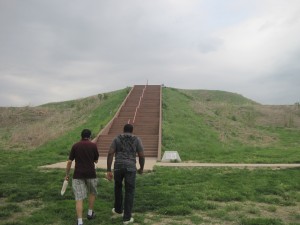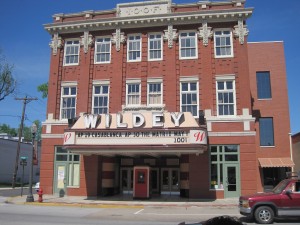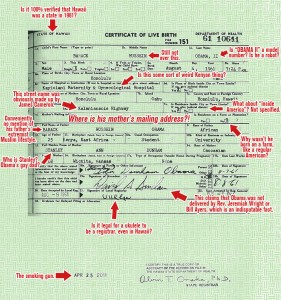TO: All Media, Poets & Writers, Readers/Students/Lovers of Poetry, Aspiring Poets, Literati
FROM: “Drumvoices Revue”/SIUE English Dept./EBR Writers Club: 618 650-3991; Email: eredmon@siue.edu; Fax: 618 650-3509
Call: “Kwansabas” for Special 20th Anniversary Issue of Journal
Kwansaba example #1: To Godson Sekou: a Kwansabas for Your 18th Birthday
I entrust to you our past, never
fully passed, dressed in royalty & poverty,
a symfony of koras & Zoras, war-
prepped prayers & def jams of bondage,
Nia-driven duties, a pyramid named Asa,
a motif known as Malcolm &, finally,
Sekou, a land of juju called Medu.
—
EBR/2010, from MS
“Drumvoices Revue: A Confluence of Literary, Cultural & Vision Arts” is issuing a “call” for the “kwansaba,” a 49-word poetic form created in East St. Louis, Illinois during the Eugene B. Redmond Writers Club’s 1995 season. The kwansaba
is a layer of sevens: seven lines, seven words per line, and seven letters (or fewer) per word. (Exceptions to the seven-letter rule are proper nouns and foreign terms.) If used as stanzas in a poem, each kwansaba should also have a
stand-alone life. Accepted kwansabas will appear in Drumvices Revue’s 20th Anniversary issue #17 (Fall 2011). Hundreds of examples/discussions of the form can be accessed via online search engines and previous issues of DR which have featured kwansabas devoted to Katherine Dunham, Amiri Baraka, Sonia Sanchez, Maya Angelou, Miles Davis, Jayne Cortez, Quincy Troupe and others.
Kwansaba example #2: Song of Sister Maya
From God’s amazing peace rises a choir
of caged birds, the leader’s private song
flung up to heaven like a paean
on the pulse of morning. Hallelujah, the
heart of this woman, taking nothing for
her journey, says if you’re singin’, wingin’
and swingin’, sit at the welcome table.
–Marie A. Celestin (Young), from “Drumvoices” #15, 2007
Themes/focuses: 1. “2011” as it arches East St. Louis’ Sesquicentennial (150th year) re: the city’s historical impact on the bi-state area (Illinois/Missouri), Midwest, nation and globe (e.g., the 1917 race riots). 2. The 25th birthday of the EBR Writers Club, which has co-published “Drumvoices” with Southern Illinois University Edwardsville since 1991 (Club namesake has been poet laureate of ESL for 35 years). 3. “1926,” year of ESL Native Son Miles Davis’ birth (he’s 85!) and the co-writing/recording of “East St. Louis Toodle-Oo” by Duke Ellington, one of MD’s idols. 4. Other East St. Louisans who created their way out of “no way,” including Harry Edwards, Lillian and Dorothy Gish, LaFonso Ellis, Dawn Harper, William Holden, Leon Thomas, Darryl Phinnessee, Donald McHenry, Jackie Joyner-Kersee, Katherine Dunham, Sherman Fowler, Barbara Ann Teer, James Rosser, the Hudlin Brothers, Ike & Tina Turner. (See attached “TALKIING POINTS” re: East St. Louis Sesquicentennial.) 5. The Sesquicentennial of the beginning of the Civil War. 6. The Centennial of Romare Bearden. 7. The 80th birth year of Toni Morrison. 8. The 45th birthday of Kwanzaa. 9. Writers Club patron saint Henry Lee Dumas (1934-1968) whose fiction and poetry Morrison helped champion into posthumous print—and whom she and critic Clyde Taylor referred to a “genius.” 10. Any of the Club Trustees
(listed below) or combination of themes/focuses noted above.
Kwansaba example #3: Kwansaba for Quincy
Come from a place of truth widdit
Smoke it lika fast ball neath dachin
Bringit bringit high & hard, wit command,
Cause it all depends u being on
Yr game, strut yo stuff, but be
Down widdit, baby, bringit high, low, calm
Come from a place of truth widdit
–Michael Castro, “Drumvoices” #15, 2007
Send kwansabas via Email—MS Word (.doc file type)–to eredmon@siue.edu–by JULY 1. Hard copies may also be sent to Editor: “Drumvoices Revue,” English Dept./Box 1431, SIUE, Edwardsville, Illinois 62026; or to EBR Writers Club, P.O. Box 6165, East St. Louis, Illinois 62202. Telephone: (618) 650-3991. (Include a two-sentence bio and a physical mailing address.) Trustees of the Club, which meets September-May, include Maya Angelou, Amiri Baraka, Avery Brooks, Haki R. Madhubuti, Walter Mosley, Quincy Troupe, Jerry Ward Jr., and Lena J. Weathers. The late Margaret Walker Alexander (1915-1998), Gwendolyn Brooks (1917-2000), Raymond Patterson (1929-2001) and Barbara Ann Teer (1937- 2008) were also trustees. Founded in 1986, the group was chartered by Fowler,Roy and EBR.
Kwansaba example #4: Calling your name
for richard wright
rich in the sadness of our times
harsh again the dark storms we weather
our boys, our men hemmed by hate—
your black rites call across these years.
your hand sure in calling forth truth
writes black boys into men of honor
makes us richer, guides us toward light
–devorah major, “Drumvoices” #16, 2008
Kwansaba example #5: For Katherine Dunham
(Inspired by “A Touch of Innocence” and “Island Possessed”)
Come here lost child of Nan Guinee
Come away, spin free of the dust
Away from Bluff Street, and the wheel
Move arms, move legs, coax bad knees
Dance in wedded union with the earth
Carry Thunder, carry Shango, carry me—Home
To Haiti on breath freer than air.
–Mali Newman, “Drumvoices” #12, 2004


